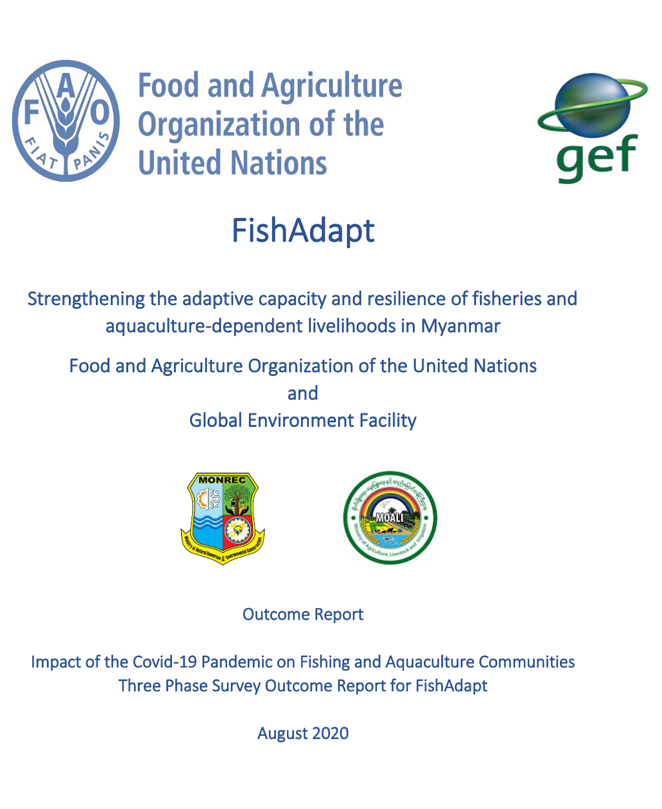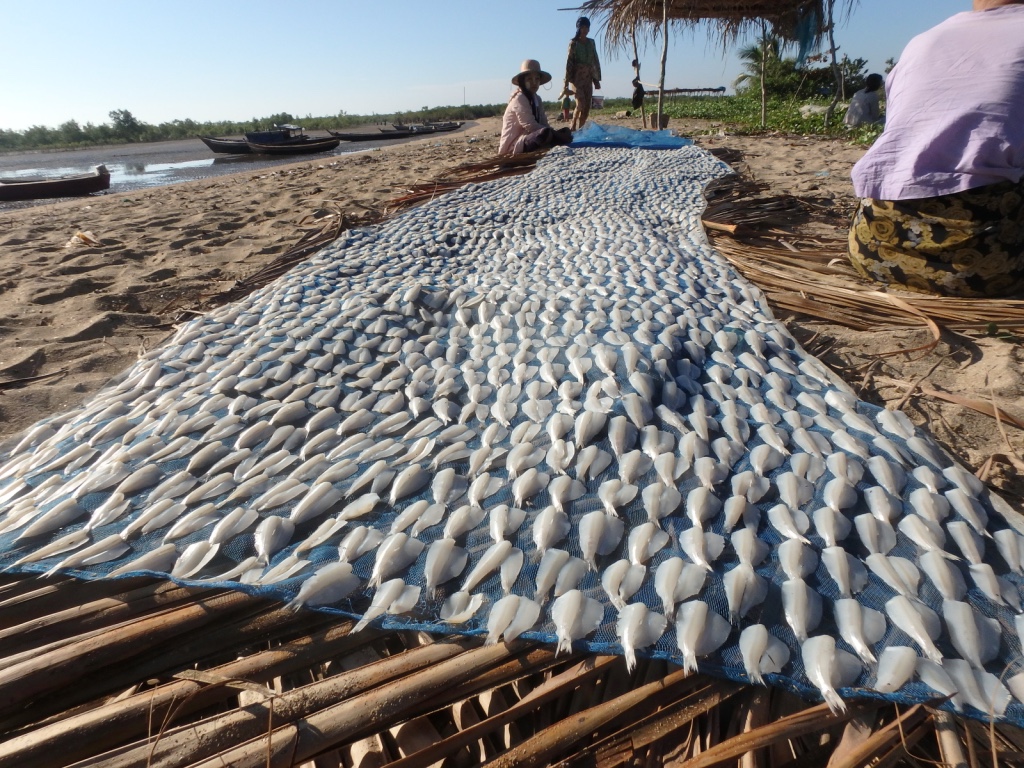
Background: COVID - 19 situation in Myanmar
The coronavirus infection Covid-19 was declared a pandemic by the World Health Organization (WHO) on 11 March 2020. The Government of Myanmar formed the Covid-19 Control and Emergency Response Committee and working group committee to address the pandemic on 13 March 2020. On the same day public gatherings of more than four people, including the Thingyan Water Festival were banned until the end of April. As early as 5 January, Myanmar had commenced preparations for a possible pandemic outbreak and steadily increased restrictions, including external and internal travel permissions, and increased monitoring and testing as the pandemic spread around the world. Myanmar confirmed the first case in the country on 23 March 2020 and first Covid-19 related death on 31 March 2020.
Methodology
The FishAdapt project is working with 120 communities in the Yangon, Ayeyarwaddy and Rakhine regions to research and implement ways to adapt aquaculture and fishing practices to current and projected climate change. The FishAdapt project has been engaging with the communities that participated in the Covid-19 research responses since January 2019 and has established contacts and networks within these communities. The pre-existing relationship facilitated contact with key people in the communities to gather the data.

Project activities were suspended in early-April due to the travel restrictions implemented by the Government of Myanmar. To assess the evolving situation and gather information to assist the communities, team members from the FishAdapt project conducted research via phone between 23 April and 6 May 2020 in 1034 of the 120 communities working with the project to the assess the impact of Covid-19 within these communities.
The research methodology was constructed to provide information on how internal movement restrictions associated with the Covid-19 pandemic impacted food production, the ability of community members to earn a living, what affect the restrictions had on the capacity of community members to meet critical needs, and the prevalence of Covid-19 in the communities. The research also assessed the effects of the current restrictions on food security, food production, food markets and distribution networks, labour including changes in employment, health awareness and health information dissemination, the extent of support for the communities from the government and private sector, and the capacity of the communities to adapt to significant changes in circumstances.
Principle Objectives of the Research
-
To establish if any immediate food or financial assistance is required by the communities.
-
To identify the coping strategies being implemented by community members.
-
To establish the effect of the restrictions associated with Covid-19 on the communities with the view to understanding how the FishAdapt project would need to adapt project activities to the changed conditions and needs of the communities, when activities resume.
-
To identify ways in which the FishAdapt project could work with the Covid-19 Economic Relief Plan (ERP) implemented by the Myanmar government.
-
Produce a baseline for a comparative survey three months after restrictions are lifted to assess the long term impact, learnings, and adaptions the communities implemented in response to the Covid-19 restrictions.







